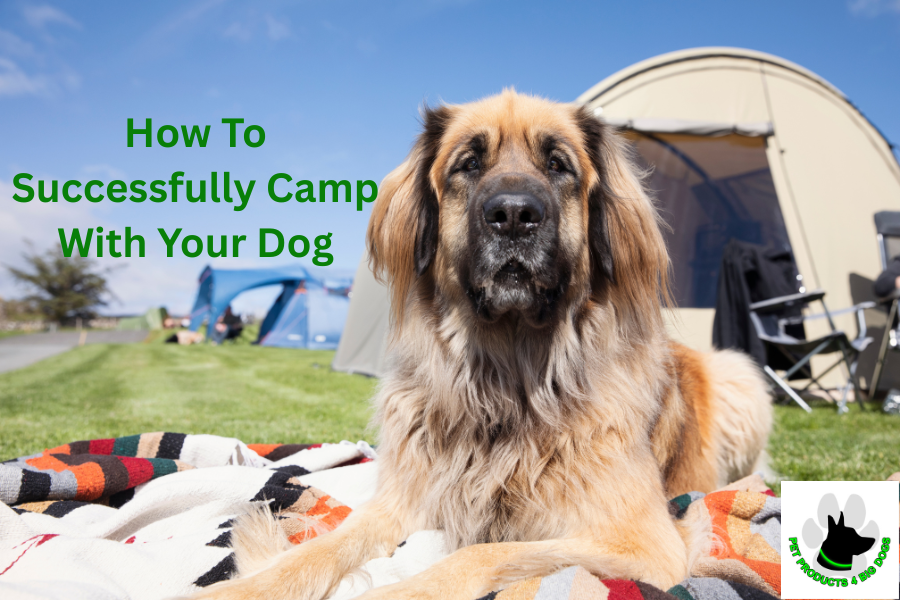Many dog lovers also love to camp. More and more campers (including individuals, families and ‘Grey Nomads’) are taking their dogs with them on their camping adventures, and why wouldn’t you? Share that time, fun and experience with all members of your family and of course your ‘best friend’. However, for it to be a great experience for all involved, here are a few special tips.
Tips For a Successful Camping With Your Dog
Preparedness Goes a LONG Way!
There are many ways to prepare for a camp when taking your dog, and firstly, it starts with where you are going. There is no point in having your dog with you, only to discover you’re going to a National Park that doesn’t allow pets. Many more campgrounds allow dogs, but not all. Plus, another important thing to consider is if you are camping at a campground which is near the beach and dog-friendly, don’t assume the beach allows dog access (even on a lead). I know a couple of beachside campgrounds that allow dogs in the camp, but they are not allowed on the beach, even on a lead.
Another big part of preparedness is considering your dog and their needs. If they are say a greyhound that feels the cold and you’re in a tent, then winter is not a great time to take them. Likewise, some breeds (or the very young, very old or rather obese) get heatstroke quite quickly, so the peak of summer outback may not be best, especially if they are used to being at home in aircon all the time.
When considering your four-legged friend, consider what you need. I’ve done a potential list below. Also, where will they likely sleep? Think about other things, like their monthly flea/tick/heartworm chewable. I made the rookie mistake one year of going to camp for a week with my furbaby only to have the reminder come up about day 2 that her treatment was due; except it was still at home. Personally, I love lists, so I have a camp list, which includes us both. Every camper is different; if you’re in a caravan or campervan, then you might have many items (like bowls etc) permanently packed, whilst a tent camper who doesn’t get away much, may not have those duplicates just sitting around. But if you do duplicate and have a second set, as a tent camper, perhaps consider a dog bag or crate just for their stuff.
What to Pack
Ok, so onto the list
Bowls – two, food and water (or three if you usually give them wet and dry food separately)
Food – breaky, treats, dinner etc – whatever is normal at home; have with you.
Leads and harness - but consider also how you will keep them from roaming; do you need a longer lead or if they are smaller, perhaps some fencing?
For winter, think about coats or blankets.
Camp bed, bedding and blankets etc - Some owners even have a camp chair just for their dog or a camp bed – find that balance of bringing enough, especially considering the amount of time you’ll be away and your dog.
You may also want to throw in an old towel to combat wet or dirty feet, dry off after a creek visit.
Brush or comb - Now whilst it’s not grooming time, I often enjoy just doing a bit of a brush when we’re sitting around doing nothing; or if they pick up some bindies and you don’t want a matted mess by the time you get home.
Vax certificate copy – campgrounds often ask for it, although I’ve never had to produce; it’s good to have on your phone in case.
Toys or balls – although be aware that if they are a dog that gets possessive with their favourite toy, then reconsider.
Medication (as above, if their monthly treatment is due, take with you).
A hang-up solar shower – great for summer at the beach, you can have a rinse off of all the salt and sand. Some locations have excellent facilities to wash dogs, but not all of them.
Heaps of poo bags!
If you’re a person who might forget something, then have a list to pack … that way you won’t arrive after a long drive, only to discover that night, you have forgotten their kibble.
Consider Other Campers Around You
Whilst I love all dogs as do most of my friends, other campers are not going to appreciate your dog barking all night, or snapping and growling at them if they go within a 100 feet of your site. Also, remember that even when you’re with friends, not every one of your friends might like your dog licking their face, or helping themselves to food plates. Of course, pick up all of your dog's business and one final thing – be respectful of other dogs. I have two camp friends who both have had dog attacks on their dogs, so their dogs are nervous when another dog walks up to them. So, just because “my dog is friendly and won’t hurt you”, that’s not an excuse to allow your dog to just go up to another. Even walking down the street at home, I always ask, “can she say hello to your dog?” and essentially ask permission first. If someone says, my dog is very sensitive / unfriendly / stressed etc … don’t take offence. Respect that not every dog wants to be greeted by other dogs. Both of my camp friends’ dogs are now ok with my dog, but that’s occurred over a lot of time; it absolutely didn’t happen at first and was very gradual so that their dogs became comfortable with my dog.
Remember Your Dog’s Needs Too!
When you’re camping, things are a bit different from home. It might be as simple as you’re in a caravan without a doggy door; so remember, they need to be taken out regularly to toilet. It might be that you’re camping with a group of friends who have said to get together for ‘Happy Hour’ with drinks and snacks at 5pm … so maybe it might be a good idea to feed your pooch first. That way, if Happy Hour goes on a bit longer, they are not having a late dinner, plus they will be less likely to try and beg for food because they are starving and that cheese smells just sooooo good! If you’re conscious of your dog's diet, then don’t be afraid to say to people as you sit down, ‘please don’t feed my dog; he’s on a special diet’ … although mostly people do ask first before giving. However, you might have to monitor things, as I know I said to one friend, “just one small piece will be fine”, but noticed a second and third piece followed. If you know your dog is prone to getting sick or having tummy problems, then it’s best to limit that food so they don’t have a bad camping experience.
So, as you can see, there is more to camping with pets than just throwing them in the car, with a tin of food and that’s it. But, if you are set up well, and make camping a great experience for them, then you’ll both love the experience. I started Mia camping shortly after her final puppy immunisation – so it’s something she has known most of her life and absolutely loves. We started with a short trip and I must say I’m incredibly lucky/pleased that she toilets on demand. We toilet before setting off and if the trip is more than say 2-3 hours, then I will stop to toilet. She loves camping, swimming, walking and seeing all her canine camp friends again … so when she sees me getting the camp gear ready and say ‘we’re going camping’ she is super excited to go on our next venture. Happy camping to one and all! 😊

